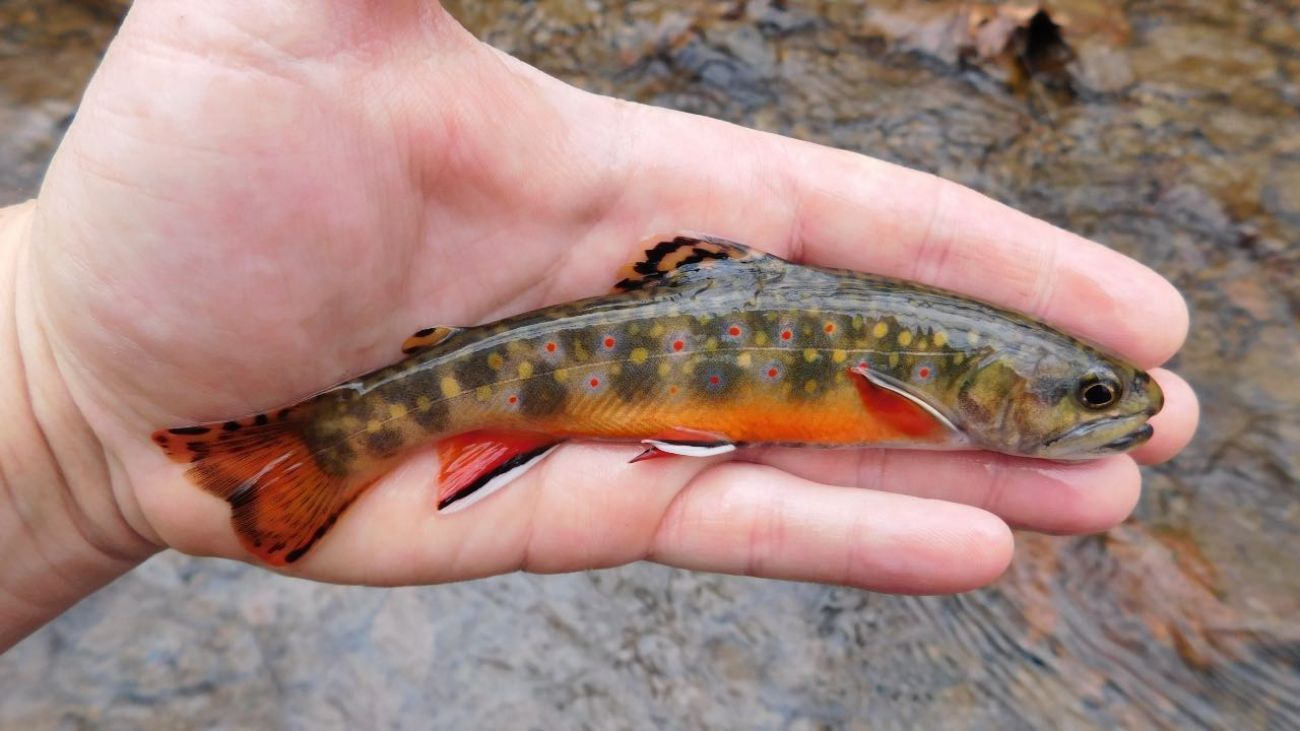Climate change is harming Michigan hunting and fishing, groups warn lawmakers

- Warming global temperatures are adding stress to key Michigan fish and game species
- A new report by Michigan outdoor groups urges attention to warming rivers, shifting game territories and other threats
- Hunting advocate to lawmakers: ‘we want to be part of the conversation to address those issues’
LANSING—Climate change is threatening the future of Michigan’s forests, fish and wildlife, and Michigan must act now to bolster nature against a warming world.
That was the message delivered to legislators Tuesday by a recently-formed coalition of hunting, fishing and conservation groups organized around their concern for how warming temperatures are affecting Michigan’s outdoors.
“We know that our game species, our beloved species here in Michigan are impacted,” said Amy Trotter, CEO of the Michigan United Conservation Clubs. “And we want to be part of the conversation to address those issues.”
Related:
- How fast should Michigan ditch fossil fuels? Lawmakers debate 2040 deadline
- Michigan Democrats push carbon-neutral energy goal back 5 years to 2040
- Climate change, bad infrastructure drives away Michigan residents, report says
The presentation before the Senate Committee on Natural Resources & Agriculture came as climate activists demonstrated outside the Capitol in favor of carbon-free energy legislation being pushed by Democrats.
While members of the outdoor coalition said they support the spirit of those efforts, they came before lawmakers to stress how Michigan should prepare for changes that are already baked-in after generations of rising fossil fuel consumption.
“We don't get into the weeds perhaps on the clean energy discussions of the day,” said Trotter. “But we understand the urgency.”
The outdoor groups, calling themselves the Changing Seasons workgroup, said Michigan must be more strategic and aggressive about how it approaches stream restoration, northward-shifting land animal territories, and siting wind and solar arrays in ways to avoid conflict with outdoor recreation.
Their comments accompanied a new report by the Changing Seasons group, outlining threats to key species underpinning the state’s $11.2 billion hunting and fishing economy. Although participation in such pursuits has been waning for decades, they remain major parts of Michigan’s outdoor identity. And revenue from license sales and taxes on guns, ammunition and equipment are the Michigan Department of Natural Resources’s biggest funding source.
But the resources that support that economy depend upon a functioning environment, members of the coalition said. And Michgan’s is under threat as climate change makes rivers too warm for native fish, pushes native tree species to the brink, stresses northern mammals like moose, and alters the migration patterns of ducks and geese.
As Bridge has reported, some changes to Michigan’s natural world are already becoming apparent:
- Waterfowl migration is happening later (or sometimes not at all) as warmer falls entice the birds to stick around longer.
- Hotter, drier weather is hindering monarch butterfly breeding, an added hazard for an endangered species already harmed by habitat loss.
- Heat is stressing Up North forests, causing die-offs of boreal tree species such as fir, spruce and cedar.
During Tuesday’s hearing, Michigan Trout Unlimited Executive Director Bryan Burroughs called for more efforts to restore rivers across Michigan.
A dependence on cold, clean water makes Michigan’s trout “the canary in the coal mine” for climate stress, Burroughs said. And rivers across the state are growing warmer, both because of higher air temperatures and more severe summer storms that pour runoff into waterways.
But Burroughs said Michigan can pre-emptively cool rivers by removing undersized culverts and unneeded dams, both of which block fish’s access to the cool upper reaches of streams.
“With as much opportunity as we have in Michigan with thousands of dams, we can actually offset (climate change) and make our rivers colder today,” Burroughs said.
But that work isn’t happening fast enough, he said.
Lawmakers largely listened, asking few questions. But Democratic Sen. Dayna Polehanki, of Livonia, took time to thank speakers for “saying the words climate change,” while noting that some Republicans still call it a hoax.
Republican Sen. Michele Hoitenga, of Manton, though, asked presenters whether they’ve researched the amount of birds and fish that are killed by wind turbines.
Presenters largely avoided wading into politics, and Trotter said after the meeting the workgroup isn’t pushing any particular legislation. Instead, she said, it hopes to inspire lawmakers as they consider their agendas and spending priorities for the ongoing session.
Michigan Environment Watch
Michigan Environment Watch examines how public policy, industry, and other factors interact with the state’s trove of natural resources.
- See full coverage
- Subscribe
- Share tips and questions with Bridge environment reporter Kelly House
Michigan Environment Watch is made possible by generous financial support from:
Our generous Environment Watch underwriters encourage Bridge Michigan readers to also support civic journalism by becoming Bridge members. Please consider joining today.
See what new members are saying about why they donated to Bridge Michigan:
- “In order for this information to be accurate and unbiased it must be underwritten by its readers, not by special interests.” - Larry S.
- “Not many other media sources report on the topics Bridge does.” - Susan B.
- “Your journalism is outstanding and rare these days.” - Mark S.
If you want to ensure the future of nonpartisan, nonprofit Michigan journalism, please become a member today. You, too, will be asked why you donated and maybe we'll feature your quote next time!






